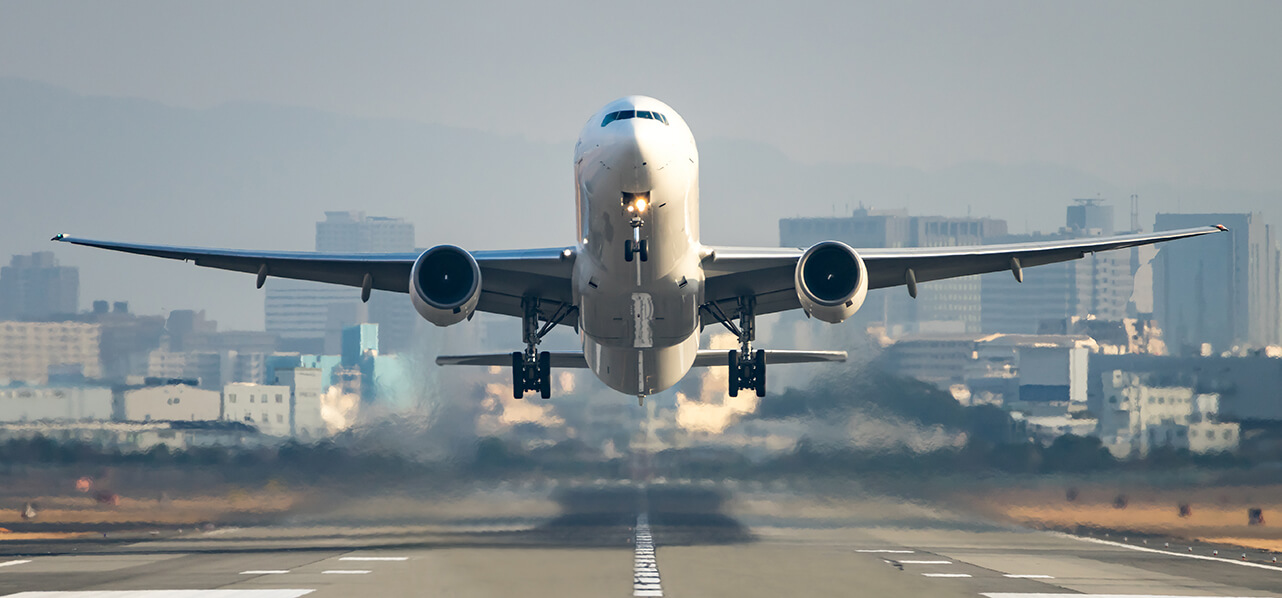Partner Singapore
"India is a common law jurisdiction and its courts are a source of law as well as its Parliament. "
- By the time the Indian courts granted GoFirst’s application for insolvency during May 2023 in response to its application made during the same month, aircraft lessors were already concerned and frustrated. GoFirst was already in default of the terms of its aircraft leases and, lessors had the right to repossess the aircraft and deregister them using their irrevocable deregistration and export request authorisations (“IDERA”). Pursuant to the Aircraft Rules (1937) (India), amended during 2015, the DGCA is legally required to deregister an aircraft upon presentment of an IDERA by the applicable holder within five days of application. Anecdotally, the DGCA has granted deregistrations using an IDERA where an airline has defaulted, but where there is not a rumoured or pending application for insolvency. In the case of GoFirst, the lessors had exercised their rights under the IDERAs in respect of the defaults which had occurred and were continuing prior to the application by GoFirst for insolvency and therefore prior to any moratorium that could be imposed pursuant to the Indian Bankruptcy and Insolvency Code (the “Code”). The lessors cautiously expected the DGCA to deregister their aircraft. The DGCA however refused to act and did not deregister any of the aircraft.
- The Indian court granted GoFirst its application for insolvency and, as expected, imposed a moratorium from creditor action pursuant to the Code. This was a further disappointment for the lessors. After being prevented from deregistering their aircraft, the next best hope for the lessors was in the application of Alternative A under the Convention. This is based on s1110 of the US Bankruptcy Code which balances debtor protection with creditor rights. Pursuant to Alternative A, an airline has a moratorium of 60 days and by expiry of this period it must either hand the aircraft back to the lessor or financier or cure all existing defaults and confirm it will continue to perform its obligations. However, the moratorium under Code can last initially for 180 days, and then beyond, as was the case with GoFirst. Had the Indian courts instead given the Convention primacy, they would have applied Alternative A and the moratorium would have been shorter with a determinable expiry.
2. The Ministry of Corporate Affairs
Whilst the lessors pursued the GoFirst matter through the Indian courts, many stakeholders were lobbying for the implementation of the Bill and willing it to become enacted during the Indian Parliamentary Monsoon session of 2023. The Bill did not pass during this session and the Indian Ministry of Corporate Affairs issued a notice, widely seen as a reaction to the failure of the Bill to pass, which stated that the Code did not apply to transactions to which the Convention applied (the “Notice”). In the context of the GoFirst insolvency, the Notice would need to have retroactive effect in order to assist the lessors. For other stakeholders the Notice gave some certainty that Alternative A would apply on future insolvencies. The Notice was delegated legislation however and after some consideration, it was viewed by many as a temporary measure which provided some reassurance pending final enactment of the Bill.
The Judgment
The Judgment contained a number of important rulings and included two significant findings:
Key contacts
"The Judgment contained many other findings on points of law which are relevant to lessors, financiers and investors in aircraft in India."
- The IDERA: the Court held that the DGCA must deregister aircraft upon the valid exercise by an IDERA holder of its rights thereunder and the DGCA (and the Indian courts) must follow the rules of the Convention in this respect. Therefore, the DGCA should have deregistered the GoFirst aircraft upon application by the lessors, especially as these rights were validly exercised prior to the application for, and granting of, an order for insolvency by GoFirst. Consequently, the lessors should not have been prevented from repossessing their aircraft by the moratorium; and
- Moratoriums and the Notice: the Court confirmed that the Code does not apply to transactions to which the Convention applies. Furthermore, the Notice, which confirmed the same, had retroactive effect given that the Convention was ratified by India in 2008.
The Judgment contained many other findings on points of law which are relevant to lessors, financiers and investors in aircraft in India. However, these two findings are key for stakeholders. The ability of stakeholders to repossess and deregister aircraft quickly in a Convention jurisdiction relies on the efficacy of the IDERA and a clear and reliable limit on the period of any moratorium. These are crucial factors for investors when deciding whether to finance aircraft in any jurisdiction.
The Future of the Convention in India
The GoFirst insolvency might not have come at a worse time for all stakeholders in Indian aviation. Despite GoFirst, India’s aviation industry is undergoing phenomenal expansion and growth. Its other airline credits have for many years secured finance from international investors on globally competitive terms. However, pursuant to the expansion, Indian airlines are likely to require access to new markets. The GoFirst insolvency has created a hurdle for new investor entrants to overcome and raised bad memories in investors which vacated the Indian market following other previous Indian airline insolvencies. The situation was made worse due to other factors including: the GoFirst lessors were prevented from properly accessing their aircraft during the moratorium in order to maintain them, which is essential in any repossession scenario, but especially in the hot and dusty environment of India, which has materially adversely affected value of the aircraft; and the period over which this situation has transpired has been buoyant for the global aircraft leasing market and lessors could have found other airlines to lease the aircraft quickly which would have helped mitigate their losses.
However, the Judgment should be seen as a very important and positive milestone in the various branches of the Indian administration coming together to provide necessary support to the Indian aviation industry and its growth plans. The Bill remains a priority for the government and is expected to pass during 2024. This should conclude the lengthy uncertainty with respect to the primacy of the Convention in India and therefore, notwithstanding the Judgment, its enactment is essential for Indian airlines to gain access to certain finance markets and most the competitively priced finance. Access to competitive finance for Indian airlines means cheaper finance costs. As finance costs are passed onto passengers through higher airfares, the ultimate consequence of final primacy for the Convention in India is lower prices and further democratisation of air travel for the Indian consumer.
Key contacts
Partner Singapore
Partner London
Partner London
Associate London







